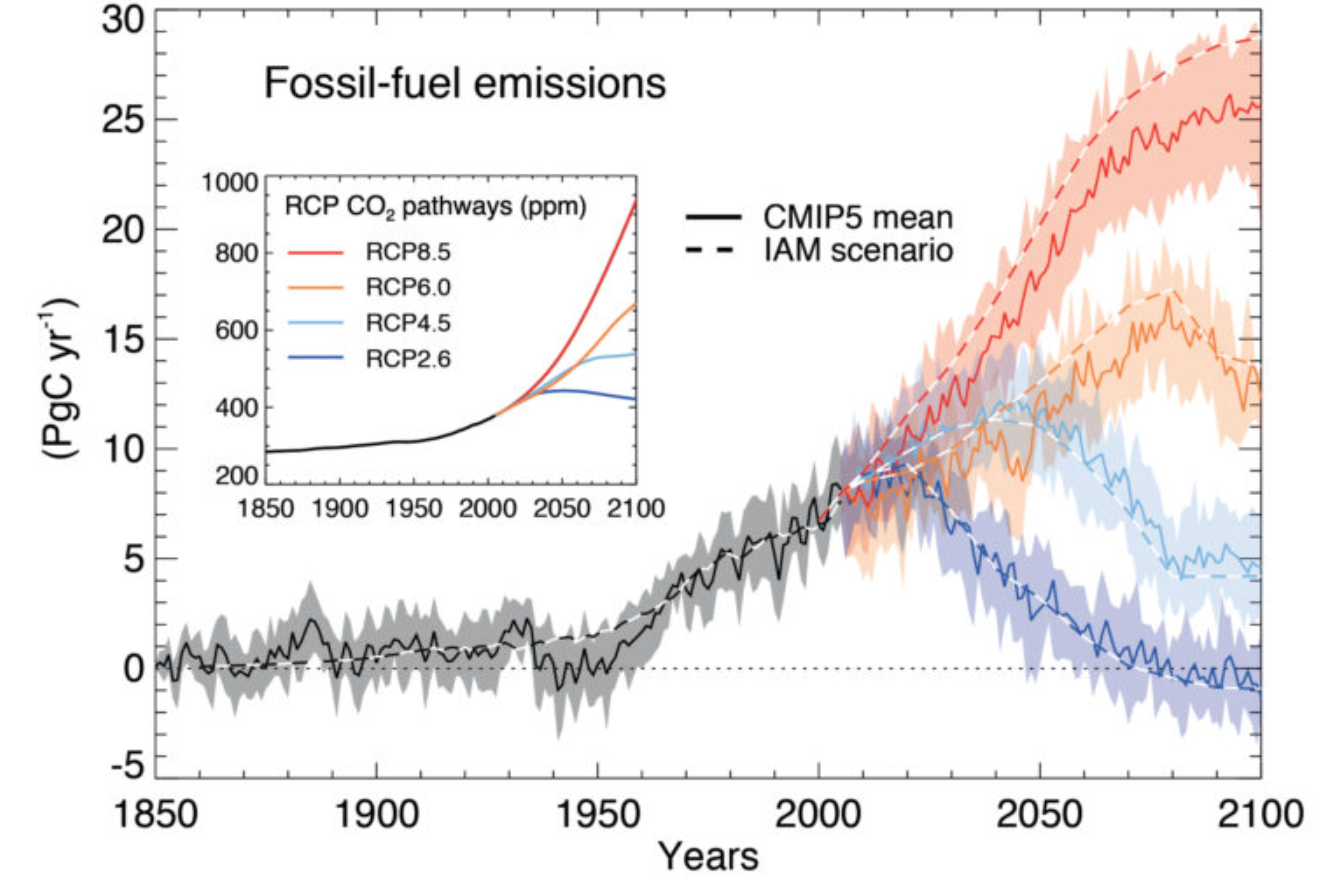Models and Observations for Two CMIP5 Ensemble Means
I found csv file of the CMIP5 ensemble means for RCP4.5 and 8.5 on the Climate Reanalyzer website, so I downloaded both so I can do my own comparisons. I plotted multiple GMST datasets including 2 reanalyses with both RCP ensemble means from CMIP5. RCP4.5 over the last 15 years has been trending slightly warmer than observations. I don't have the 95% uncertainty envelopes, but observations here are clearly going to be well within the envelope.
But I decided to plot 30-year trends for these datasets with the expected 30 year trends in the two model ensemble means. It shows that while the models have expected a higher trends in warming over the last 15 years or so, RCP4.5 expects a steep drop off in warming rates right about now. This suggests to me that these scenarios are expecting a deceleration of our emissions in pretty substantially in ways that simply isn't happening. If current trends continue, we're likely to surpass RCP4.5 over the next decade or two, while RCP8.5 may still be relevant to future warming..png)
.png)




Comments
Post a Comment